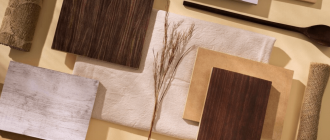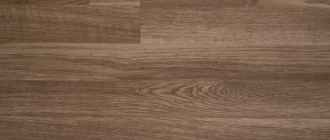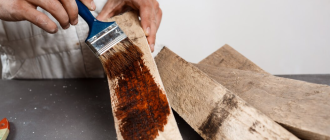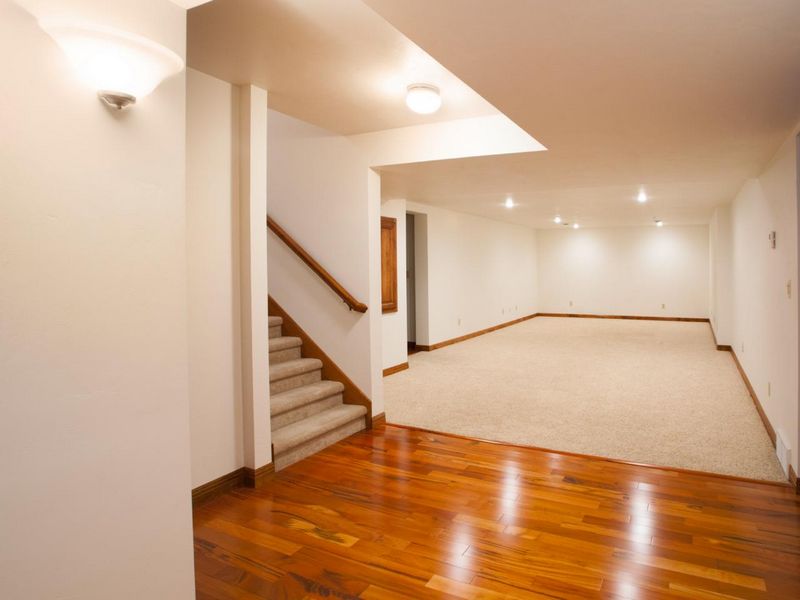
Best Basement Flooring Options
When it comes to choosing the right flooring for your basement, there are several options to consider. Whether you want to transform your basement into a stylish entertainment area or a functional living space, the right flooring can make a world of difference. From traditional tile and concrete options to modern laminate, carpet, and vinyl choices, there is a flooring option to suit every taste and need.
If you’re looking for a durable and waterproof option, concrete flooring is a popular choice for basements. It can be stained or painted to create a stylish and unique look, and it is resistant to moisture and mold. However, it can be hard and cold underfoot, so adding area rugs or rubber padding can provide some insulation and comfort.
Another option to consider is laminate flooring, which is versatile and affordable. It can mimic the look of wood or tile, and it is easy to install and maintain. Laminate flooring is also resistant to moisture, making it a good choice for basements that are prone to dampness. Additionally, carpet can add warmth and coziness to a basement, and it can help to muffle sound. However, it is important to choose a carpet that is specifically designed for basements, as regular carpet can be susceptible to moisture damage.
For a stylish and low-maintenance option, vinyl flooring is a great choice. It is available in a wide range of colors and patterns, including designs that imitate the look of tile or hardwood. Vinyl flooring is also resistant to moisture and easy to clean, making it an excellent choice for basements. Whether you prefer a traditional or modern look, there are plenty of options to choose from to create a stylish and functional basement space.
Top Basement Flooring Options
When it comes to choosing the best flooring for your basement, there are several options to consider. Each type of flooring has its own unique advantages and disadvantages, so it’s important to carefully weigh your options before making a decision.
- Carpet: Carpet is a popular choice for basement flooring because it’s soft, comfortable, and creates a cozy atmosphere. However, it can be prone to moisture and mold, so it’s important to choose a carpet that is moisture-resistant.
- Tile: Tile is a durable and waterproof option for basement flooring. It comes in a wide variety of styles, colors, and patterns, so you can easily find a tile that matches your basement’s aesthetic. However, tile can be cold underfoot and may require a subfloor for insulation.
- Vinyl: Vinyl flooring is a versatile and cost-effective choice for basements. It’s easy to install and maintain, and it’s resistant to moisture and mold. Vinyl is available in a range of styles, including wood-look and stone-look, so you can achieve the desired look for your basement.
- Laminate: Laminate flooring is an affordable and stylish option for basements. It mimics the look of hardwood or stone but is more resistant to moisture and scratches. However, laminate can be noisy underfoot and may require an underlayment for insulation.
When choosing the best flooring option for your basement, consider factors such as your budget, the level of moisture in your basement, and the desired aesthetic. It’s also important to properly prepare your basement before installing any type of flooring to ensure its longevity and functionality.
In conclusion, the best flooring options for basements include carpet, tile, vinyl, and laminate. Each option has its own unique qualities and considerations, so it’s important to carefully evaluate your needs and preferences before making a decision.
Epoxy Flooring for a Durable and Modern Look
If you are looking for a basement flooring option that is both durable and modern, consider epoxy flooring. Epoxy is a type of resin that is applied to the concrete floor to create a seamless and high-performance surface.
Epoxy flooring offers many benefits for your basement. First and foremost, it is extremely durable and can withstand heavy foot traffic, making it a great option for busy households. It is also resistant to stains, chemicals, and moisture, which is essential for a basement environment.
In addition to its durability, epoxy flooring is highly customizable. It comes in a wide range of colors and finishes, allowing you to create a unique and stylish look for your basement. Whether you prefer a sleek and modern aesthetic or a more rustic and industrial feel, epoxy flooring can accommodate your design preferences.
Another advantage of epoxy flooring is its ease of maintenance. It is easy to clean and requires minimal upkeep. The sealed surface prevents dirt and dust from accumulating, and any spills or messes can be easily wiped away.
Installing epoxy flooring in your basement is also a cost-effective choice. It is generally more affordable than other flooring options such as vinyl, carpet, tile, or laminate. Additionally, epoxy is a long-lasting solution, so you won’t have to worry about replacing or repairing your basement floor in the near future.
Before installing epoxy flooring, it is important to properly prepare the concrete surface. This may involve cleaning, repairing any cracks or imperfections, and applying a primer. It is recommended to hire a professional for this task to ensure a smooth and successful installation.
In conclusion, epoxy flooring is an excellent choice for your basement if you are looking for a durable, low-maintenance, and stylish option. Consider the wide range of colors and finishes available to create a modern and personalized look for your basement. With its many benefits and cost-effectiveness, epoxy flooring stands out as one of the best options for a basement floor.
Luxury Vinyl Tile for a High-End Appearance
When it comes to choosing flooring for your basement, luxury vinyl tile (LVT) is an excellent option that can provide both style and functionality. Vinyl tile is a versatile and durable flooring material that can add a touch of luxury to any space, including your basement.
One of the advantages of luxury vinyl tile is that it can mimic the appearance of other flooring materials, such as tile or hardwood, but at a more affordable price. This makes it a great choice for homeowners who want a high-end look without breaking the bank.
Basements often have concrete floors, which can be cold and unwelcoming. Luxury vinyl tile provides a warm and comfortable surface that is much more pleasant to walk on compared to concrete. It also helps to insulate the space and reduce noise, making it an ideal choice for basements.
In addition to its visual appeal and comfort, luxury vinyl tile is also highly durable and resistant to moisture, which is crucial for basements. It can withstand spills, humidity, and even minor flooding without warping or buckling. This durability makes it an excellent choice for basements that may be prone to water damage.
Another advantage of luxury vinyl tile is its easy installation. It can be installed directly on top of existing flooring, such as laminate or carpet, which can save time and money on removing the old flooring. It can also be installed over uneven concrete floors, providing a smooth and level surface.
When it comes to finding the best luxury vinyl tile for your basement, there are a wide range of options available. You can choose from a variety of colors, patterns, and textures to match your personal style and complement the rest of your basement decor.
Overall, luxury vinyl tile is an excellent flooring option for basements. It combines the elegant look of tile or hardwood with the durability and moisture resistance of vinyl. Whether you want to create a high-end entertainment space or a cozy family room, luxury vinyl tile can help you achieve the stylish and functional basement of your dreams.
Engineered Hardwood for a Warm and Inviting Feel
When it comes to flooring options for your basement, there are many choices to consider. From vinyl and tile to concrete and laminate, there are a variety of materials that can work well in a basement setting. However, one option that is often overlooked is engineered hardwood.
Engineered hardwood is a great choice for basements because it offers the warmth and beauty of real wood without the risk of damage from moisture. Unlike traditional hardwood, engineered hardwood is made up of multiple layers of wood glued together, with a top layer of real hardwood veneer. This construction gives engineered hardwood its strength and stability, making it less likely to warp or cup due to changes in humidity.
In addition to its durability, engineered hardwood also offers a warm and inviting feel to any basement space. The natural beauty of the wood grain adds a touch of elegance and sophistication, while the variety of available finishes and stains allows you to customize the look to suit your personal style.
Another advantage of engineered hardwood is its ease of installation. Unlike solid hardwood, engineered hardwood can be glued or floated over a variety of subfloor materials, including concrete. This makes it a versatile option for basements with different types of flooring.
When it comes to maintenance, engineered hardwood is relatively easy to care for. Simply sweep or vacuum regularly to remove dirt and debris, and clean up any spills or stains promptly to prevent damage. Regular maintenance should also include using a wood cleaner or polish to keep the floors looking their best.
In conclusion, if you’re looking for a flooring option that combines warmth, durability, and beauty for your basement, consider engineered hardwood. With its ability to withstand moisture, its warm and inviting feel, and its ease of installation and maintenance, engineered hardwood is a stylish and functional choice for any basement space.
Ceramic Tile for a Sleek and Low-Maintenance Surface
When it comes to basement flooring options, ceramic tile is a top choice for many homeowners. Its sleek and stylish appearance, combined with its low-maintenance nature, makes it an ideal flooring option for the basement.
One of the best things about ceramic tile is its durability. It can withstand heavy foot traffic and is resistant to scratches and stains. This makes it perfect for a basement, where moisture and humidity can be an issue. Ceramic tile is also easy to clean, requiring only a damp mop or a mild cleaning solution to keep it looking its best.
In addition to its functional benefits, ceramic tile also offers a wide range of design options. There are countless colors, patterns, and sizes to choose from, allowing homeowners to create a customized look that matches their style and personal preference.
Another advantage of ceramic tile is its compatibility with radiant heating systems. This makes it a perfect choice for basements, as it can help keep the space warm and cozy during the colder months.
Before installing ceramic tile in your basement, it’s important to ensure that the concrete subfloor is in good condition. Any cracks or uneven areas should be repaired before laying the tile. It’s also recommended to use a waterproofing membrane to prevent moisture from seeping through the concrete and damaging the tile.
Overall, ceramic tile is a fantastic option for basement flooring. Its sleek and low-maintenance surface, along with its durability and design flexibility, make it a top choice for homeowners looking to create a stylish and functional space in their basement.
Concrete Stained Floors for a Trendy and Industrial Style
If you’re looking for a trendy and industrial style for your basement flooring, concrete stained floors are a great option to consider. Concrete stained floors offer a unique and stylish look that can transform your basement into a modern and sophisticated space.
One of the best things about concrete stained floors is their versatility. They come in a variety of colors and patterns, allowing you to choose the perfect look for your basement. Whether you want a bold and vibrant color or a more subtle and natural tone, there’s a concrete stain that will match your style.
Vinyl, laminate, and tile flooring options are popular choices for basements, but concrete stained floors offer a distinct aesthetic that stands out from the crowd. The industrial look of concrete can add character and charm to your basement, creating a stylish and unique space.
Not only do concrete stained floors look great, but they’re also highly durable and easy to maintain. Their strong and sturdy nature makes them resistant to wear and tear, making them a long-lasting flooring option for your basement. Additionally, cleaning concrete stained floors is a breeze – simply sweep and mop as needed to keep them looking their best.
Another advantage of concrete stained floors is their cost-effectiveness. Compared to other flooring options, such as hardwood or carpet, concrete stained floors are generally more affordable. This makes them a popular choice for homeowners who want a stylish and functional basement without breaking the bank.
If you’re worried about the cold feel of concrete, you can easily add a touch of warmth and comfort by placing area rugs or carpet tiles in strategic areas of your basement. This will not only add an element of coziness to your space but also help to insulate the floor.
In conclusion, if you’re looking to create a trendy and industrial style in your basement, concrete stained floors are a great option. They offer a stylish and unique look, are durable and easy to maintain, and are cost-effective compared to other flooring options. Consider concrete stained floors for your basement to achieve a modern and sophisticated space.
Rubber Flooring for a Comfortable and Resilient Solution
If you’re looking for the best basement flooring option that provides both comfort and resilience, rubber flooring is an excellent choice. Whether your basement is used as a recreational space, a home gym, or a play area for children, rubber flooring offers a stylish and functional solution.
Rubber tiles are a popular choice for basement flooring due to their durability and versatility. These tiles can easily be installed over any existing concrete flooring, providing a comfortable cushion underfoot. With their shock-absorbing properties, rubber tiles are ideal for basement spaces where impact resistance is important, such as a home gym or play area.
In addition to comfort and resilience, rubber flooring is also low-maintenance and easy to clean. Spills and stains can be easily wiped away with a damp cloth or sponge, and the tiles can be swept or vacuumed to remove dust and debris.
There are a variety of rubber flooring options available for basement spaces, including interlocking rubber tiles and rubber rolls. Interlocking rubber tiles are easy to install and can be customized to fit any size or shape of basement. Rubber rolls, on the other hand, provide a seamless and smooth surface that is perfect for larger basements.
Another advantage of rubber flooring is its slip-resistant properties. This makes it a safe option for basement spaces, especially if you have children or elderly individuals who may be more prone to accidents. The rubber surface provides traction and stability, reducing the risk of slips and falls.
Finally, rubber flooring offers a wide range of design options. It comes in various colors and patterns, allowing you to create a stylish and cohesive look for your basement. Whether you prefer a bold and vibrant color or a more subtle and neutral palette, there is a rubber flooring option to suit your taste and style.
In conclusion, rubber flooring is the best option for a comfortable and resilient basement space. Its durability, ease of maintenance, slip-resistant properties, and design options make it a practical and stylish choice for any basement.
Laminate Flooring for a Cost-Effective and Versatile Choice
Laminate flooring is a popular option for basements due to its cost-effectiveness and versatility. It provides a stylish and functional solution for homeowners looking to enhance the appearance of their basement while staying within their budget.
One of the reasons why laminate flooring is a great choice for basements is its durability. It can withstand high levels of foot traffic and is resistant to scratches and dents. This makes it an ideal option for households with children and pets.
Another advantage of laminate flooring is its moisture resistance. Basements are prone to humidity and occasional moisture, and laminate flooring is designed to withstand these conditions. Unlike hardwood or carpet, laminate does not absorb moisture, preventing mold and mildew growth.
Laminate flooring also offers a wide range of design options. It is available in various patterns and styles, including options that mimic the look of hardwood, tile, or stone. Whether you want a rustic wood look or a sleek modern design, there is a laminate option to suit your taste.
Installation of laminate flooring is relatively easy and can be done as a DIY project. Most laminate flooring comes in interlocking planks or tiles, which can be easily installed over concrete or existing flooring. This saves homeowners time and money compared to other flooring options that require professional installation.
In terms of maintenance, laminate flooring is easy to clean. Regular sweeping and occasional mopping with a damp cloth is usually sufficient to keep it looking its best. This is particularly beneficial for basements, which can accumulate dust and dirt more easily compared to other areas of the house.
In conclusion, laminate flooring is a cost-effective and versatile choice for basement flooring. Its durability, moisture resistance, wide range of design options, and easy installation and maintenance make it one of the best options for homeowners looking to transform their basement into a stylish and functional space.
Cork Flooring for a Green and Eco-Friendly Option
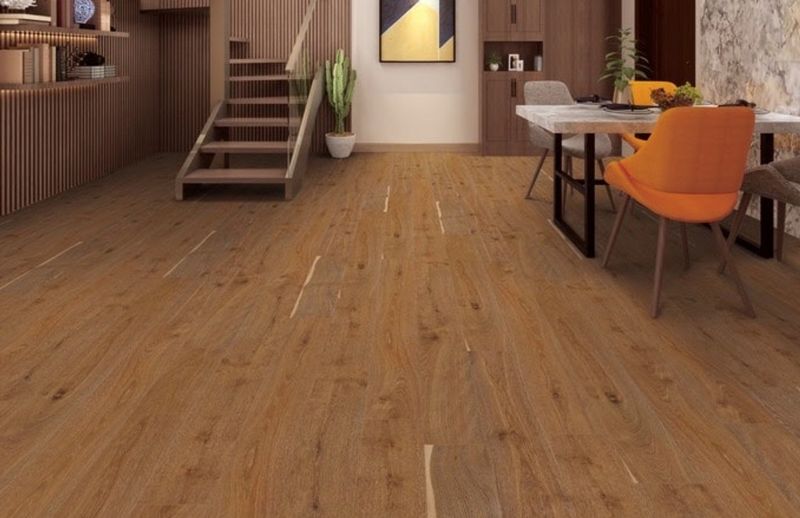
Cork flooring is a popular choice for homeowners looking for a green and eco-friendly option for their basement flooring. Unlike laminate or concrete, cork is a natural material that is sustainable and renewable.
One of the benefits of cork flooring is its unique look and texture. Cork has a warm and inviting appearance that can add a touch of elegance to any basement. It also has a soft and cushioned feel underfoot, making it comfortable to walk on for long periods of time.
Another advantage of cork flooring is its natural insulation properties. Cork is a great insulator, which means it can help regulate the temperature in your basement and reduce noise transmission from other parts of your home. This makes cork flooring an excellent choice for basements that are used as entertainment areas or home offices.
In addition to its aesthetic and functional benefits, cork flooring is also a low-maintenance option. It is resistant to mold, mildew, and insects, making it a durable choice for basement environments. It is also easy to clean and maintain, requiring only regular sweeping and occasional damp mopping.
When it comes to installation, cork flooring is available in both tiles and planks. These can be easily installed using a floating method, which means they are not glued or nailed down. This makes cork flooring a DIY-friendly option for those who enjoy taking on home improvement projects.
Overall, if you are looking for a green and eco-friendly option for your basement flooring, cork flooring is one of the best options to consider. Its natural beauty, insulation properties, and low-maintenance requirements make it a stylish and functional choice for any basement space.
Carpets and Area Rugs for a Cozy and Soft Atmosphere
If you are looking to create a cozy and soft atmosphere in your basement, carpets and area rugs are the ideal flooring options. They provide comfort underfoot and help to insulate the space, making it warm and inviting.
Concrete and vinyl may be the best options for durability and moisture resistance, but they can feel cold and hard. If you want to add a touch of luxury and warmth to your basement, carpet is the way to go.
Laminate and tile are other popular choices for basement flooring, but they can also lack the softness and warmth that carpets provide. While these options may be more practical for areas that are prone to moisture, they don’t offer the same level of comfort.
With the wide range of carpets and area rugs available, you can easily find a style that suits your basement decor. Whether you prefer a plush carpet with deep pile or a low-pile carpet for a more contemporary look, there is a carpet option to fit your needs.
Area rugs can also be used to add a pop of color or pattern to your basement floor. They can be easily changed and updated, giving you the flexibility to adjust your decor as needed. Plus, area rugs are a great way to define different areas in your basement, such as a seating or play area.
When choosing carpets or area rugs for your basement, it’s important to consider the type of carpet fiber. Synthetic fibers like nylon and polyester are more resistant to moisture and stains, making them ideal choices for basement environments.
Overall, carpets and area rugs offer a cozy and soft flooring option for your basement. They not only provide comfort and insulation but also add style and warmth to the space.
Bamboo Flooring for a Sustainable and Stylish Alternative
Bamboo flooring is a popular and sustainable option for basements, offering a stylish and eco-friendly alternative to traditional flooring materials like carpet, tile, laminate, and vinyl. Here are some reasons why bamboo flooring is an excellent choice for your basement:
- Sustainability: Bamboo is a fast-growing plant that can be harvested in just a few years, making it an environmentally friendly choice. Unlike hardwood trees, which take decades to mature, bamboo can be replenished relatively quickly.
- Strength and Durability: Bamboo is known for its strength and durability, making it a great option for high-traffic areas like a basement. It is harder than many hardwoods and can withstand the weight of heavy furniture and constant foot traffic without showing signs of wear and tear.
- Moisture Resistance: Basements can be prone to moisture and humidity issues, but bamboo flooring is naturally resistant to these conditions. It is less likely to warp or buckle when exposed to moisture, making it a suitable choice for basements.
- Easy Maintenance: Bamboo flooring is relatively easy to clean and maintain. Regular sweeping or vacuuming, along with occasional mopping, is usually enough to keep it looking its best. It is also less prone to staining compared to carpet or other flooring options.
- Aesthetic Appeal: Bamboo flooring offers a sleek and modern look that can enhance the overall aesthetic of your basement. It comes in a variety of styles, shades, and finishes, allowing you to choose the perfect option to complement your existing décor.
In conclusion, bamboo flooring is a sustainable, durable, and visually appealing choice for basement flooring. Consider this stylish alternative when searching for the best flooring options for your basement.
Linoleum Flooring for a Classic and Timeless Appeal
If you’re looking for a flooring option that combines classic style, durability, and affordability, linoleum may be the perfect choice for your basement. Linoleum flooring offers a timeless appeal that can enhance the overall look and feel of your space.
One of the biggest advantages of linoleum flooring is its ability to resist moisture, making it an ideal option for basements. Unlike options like carpet or hardwood, linoleum can withstand the damp conditions often found in basements and prevent mold and mildew growth.
Linoleum flooring is made from natural materials such as linseed oil, resins, wood flour, and limestone, making it an eco-friendly choice. It is a renewable resource and does not produce harmful chemicals during its production or installation.
Another benefit of linoleum flooring is its durability. It is resistant to scratches, stains, and wear and tear, making it an excellent option for high-traffic areas like basements. With proper maintenance, linoleum flooring can last for decades without losing its original beauty.
Linoleum comes in a wide range of colors, patterns, and styles, allowing you to create a custom look that suits your personal taste and complements the overall design of your basement. Whether you prefer a traditional or modern aesthetic, there is a linoleum flooring option available for you.
Installation of linoleum flooring is relatively easy and can be done over various existing surfaces, including concrete or plywood. It can also be installed as either a glue-down or a floating floor, depending on your preference and the condition of your basement floor.
In terms of maintenance, linoleum is a low-maintenance option. Regular sweeping or vacuuming and occasional mopping with a mild cleanser are usually sufficient to keep your linoleum flooring looking its best. Avoid using abrasive cleaners or excessive moisture, as these can damage the surface.
Overall, linoleum flooring is a versatile and practical option for your basement. Its classic and timeless appeal, combined with its durability and moisture resistance, make it an excellent choice for creating a stylish and functional space.
Porcelain Tile for a Waterproof and Long-Lasting Surface
When it comes to choosing the best flooring option for your basement, there are several options to consider. Vinyl, carpet, and concrete are common choices, but one option that stands out is porcelain tile. Porcelain tile is a durable and stylish choice that offers a waterproof and long-lasting surface for your basement.
One of the main advantages of porcelain tile is its water resistance. Basements are often prone to moisture and humidity, which can cause damage to certain types of flooring. However, porcelain tile is non-porous, making it resistant to water and preventing any potential damage. This makes it an ideal choice, especially if you have any concerns about flooding or leaks in your basement.
In addition to its water resistance, porcelain tile is also known for its durability. It is a highly resilient material that can withstand heavy foot traffic, making it suitable for use in high-traffic areas like basements. Porcelain tile is also resistant to scratches and stains, which adds to its longevity. With proper installation and maintenance, porcelain tile can last for many years.
Another benefit of porcelain tile is its versatility in design options. It comes in a wide range of colors, patterns, and textures, allowing you to create the perfect look for your basement. Whether you prefer a sleek and modern style or a classic and timeless aesthetic, there is a porcelain tile that will suit your taste. Additionally, porcelain tile can mimic the appearance of other materials such as wood or stone, giving you the look you desire without the maintenance requirements.
When considering porcelain tile for your basement, it’s important to note that it can be a more expensive option compared to other flooring choices. However, the long-term benefits and durability of porcelain tile make it a worthwhile investment. Additionally, the low maintenance requirements of porcelain tile can save you time and money in the long run.
In conclusion, if you’re looking for a flooring option that is both waterproof and long-lasting for your basement, porcelain tile is an excellent choice. Its water resistance, durability, and design options make it a top choice among homeowners. Consider porcelain tile for your basement flooring to create a stylish and functional space that will last for years to come.
Polished Concrete for a Modern and Minimalist Look
If you’re looking for the best flooring option for your basement that combines style and functionality, polished concrete is the perfect choice. With its sleek and modern appearance, polished concrete can transform your basement into a contemporary and minimalist space.
Concrete is a durable material that can withstand heavy foot traffic and is highly resistant to moisture. This makes it an ideal option for basements, where moisture can be a common issue. Unlike other flooring options such as laminate, carpet, vinyl, or tile, polished concrete does not trap moisture, preventing mold and mildew growth.
Polished concrete is also low maintenance, requiring only regular cleaning to keep it looking its best. Unlike carpet or laminate, it doesn’t require special cleaning solutions or professional cleaning services. Simply sweep or vacuum the floor and mop it with a mild detergent to remove any dirt or stains.
One of the key advantages of polished concrete is its versatility. It can be customized to match any design style or color scheme. You can choose from a wide range of finishes, from a high-gloss shine to a matte surface. Additionally, decorative elements such as aggregates, stains, or dyes can be added to create a unique look.
In terms of cost, polished concrete can be a budget-friendly option. Compared to other flooring materials like hardwood or natural stone, it is an affordable choice. Additionally, its long lifespan and low maintenance requirements make it a cost-effective investment in the long run.
Another benefit of polished concrete is its eco-friendly nature. It is an environmentally sustainable option as it utilizes existing materials, reducing the need for additional resources. Additionally, it does not emit harmful chemicals or volatile organic compounds (VOCs), making it a safe choice for indoor air quality.
In summary, polished concrete is the best flooring option for a stylish and functional basement. Its modern and minimalist look, durability, low maintenance requirements, and customization possibilities make it a top choice. Consider polished concrete for your basement to create a contemporary and timeless space.
Vinyl Plank Flooring for a Water-Resistant and Easy-to-Maintain Floor
When it comes to choosing the best flooring option for your basement, vinyl plank flooring is a top choice. It offers a variety of advantages that make it ideal for this space.
Water-Resistant: One of the biggest concerns when it comes to basement flooring is its ability to withstand moisture. Vinyl plank flooring is water-resistant, which means it can handle any potential moisture issues that may arise in a basement environment. This makes it a very practical choice, especially if you have any concerns about potential water damage.
Easy to Maintain: Another great benefit of vinyl plank flooring is its easy maintenance. Unlike other flooring options such as laminate or carpet, vinyl is incredibly easy to clean. A simple sweep or vacuum followed by a damp mop is usually all that is needed to keep your vinyl plank floors looking great.
Durable: Vinyl plank flooring is known for its durability. It can handle heavy foot traffic, making it a perfect choice for high-traffic areas in your basement. Whether you use your basement for entertaining, a home gym, or a play area for children, vinyl plank flooring is built to withstand the wear and tear of daily life.
Variety of Styles: Vinyl plank flooring comes in a wide range of styles and designs. Whether you prefer a natural wood look, a stone-inspired pattern, or even a tile appearance, there is a vinyl plank option available to suit your taste. This allows you to create a stylish and cohesive look in your basement, regardless of your design preferences.
Installation Options: Vinyl plank flooring can be installed in a few different ways. It can be glued down directly to a clean and prepared concrete subfloor, or it can be installed as a floating floor. This versatility in installation methods allows for easier installation and makes it suitable for both experienced DIYers and professionals alike.
Budget-Friendly: Vinyl plank flooring is an affordable option compared to other flooring materials such as hardwood or tile. With its long lifespan and low maintenance requirements, vinyl plank flooring offers excellent value for the price.
In conclusion, vinyl plank flooring is the best option for a stylish, water-resistant, and easy-to-maintain floor in your basement. Its durability, variety of styles, and budget-friendly nature make it an excellent choice for any basement space. Consider vinyl plank flooring when renovating or finishing your basement for a functional and beautiful result.
Questions and answers:
What are the most popular flooring options for basements?
Some of the most popular flooring options for basements include vinyl, carpet, laminate, tile, and concrete.
Which flooring option is the most durable for basements?
Concrete is the most durable flooring option for basements, as it is not only resistant to moisture and water damage, but also to heavy foot traffic and wear.
What is the advantage of choosing vinyl flooring for a basement?
One of the advantages of choosing vinyl flooring for a basement is its water-resistant properties, which make it a great option for areas that are prone to moisture and potential flooding.
Is it possible to install carpet in a basement?
Yes, it is possible to install carpet in a basement. However, it is important to choose a carpet that is moisture-resistant and consider using a moisture barrier underneath to prevent mold and mildew.
Can laminate flooring be installed over concrete in a basement?
Yes, laminate flooring can be installed over concrete in a basement. The concrete should be clean, dry, and level before installation, and a moisture barrier should be used to protect the laminate from potential moisture damage.
What are the top basement flooring options?
The top basement flooring options include vinyl, carpet, laminate, epoxy, and porcelain tile.
